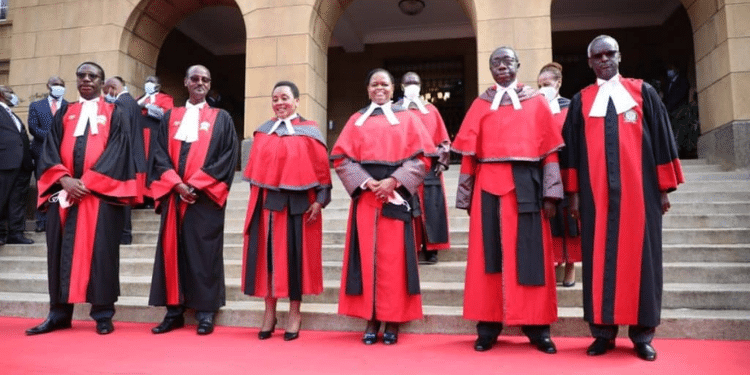The death of Kenya’s Chief Kadhi sets in motion a legal and administrative process led by the Judicial Service Commission (JSC) to appoint a new officeholder.
This process is stipulated in Article 170 of the Constitution of Kenya and the Kadhi’s Courts Act.
The Chief Kadhi heads the Kadhi’s Courts, which handle matters of Islamic personal law.
Upon the death of the officeholder, the JSC officially declares the position vacant. This is the first formal step required to initiate recruitment.
Temporary appointment of the Senior Kadhi
To ensure continuity, the JSC may appoint a senior Kadhi to serve in an acting capacity while the replacement process takes place.
The next step is advertising the vacant post. The commission places public notice in at least two national newspapers and on its official platforms.
This advert outlines the eligibility criteria and application deadline. Candidates must be Kenyan citizens, profess the Islamic faith, and be qualified to serve as a Kadhi.
Qualifications for a Chief Kadhi
Qualification includes training in Islamic law, especially in matters like marriage, divorce, and inheritance, as well as good moral standing in the Muslim community.
Once applications are received, the JSC shortlists candidates who meet the requirements. Those shortlisted are invited for public interviews.
Also Read: Chief Kadhi of Kenya Sheikh Abdulhalim Hussein Dies
The interviews assess knowledge of Islamic law, integrity, leadership, and suitability for the role. Public transparency is part of the process.
Though views from the Muslim community may be considered, the final decision rests solely with the Judicial Service Commission.
After interviews, the JSC selects the most suitable candidate. The appointment is then published in the Kenya Gazette.
Gazettement and appointing
The gazettement makes the appointment official. The new Chief Kadhi is then sworn in according to judicial protocol.
The Chief Kadhi provides leadership to all other kadhis and ensures uniform application of Islamic law under the Constitution.
This process ensures that the replacement is lawful, transparent, and respectful of religious and constitutional standards.
Also Read: JSC Appoints New Chief Kadhi
It also helps preserve the functioning of the Kadhi’s Courts without disruption, maintaining service delivery to Muslims seeking legal redress.
The new appointee assumes office fully mandated to guide the courts and uphold justice in line with Islamic principles and national law.
Follow our WhatsApp Channel and join our WhatsApp Group for real-time news updates.






![Court Suspends Sections Of The Computer Misuse And Cybercrimes Act President Ruto Address During Mashujaa Day And How He Honored Raila [Full Text Speech]](https://thekenyatimescdn-ese7d3e7ghdnbfa9.z01.azurefd.net/prodimages/uploads/2025/10/ruto-mashujaa-address-360x180.jpg)








































































I am truly thankful to the owner of this web site who has shared this fantastic piece of writing at at this place.